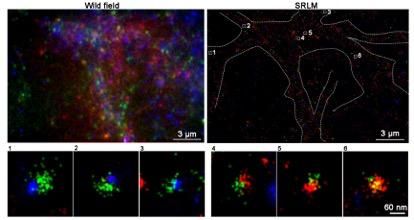Peakdale and BioLeap collaborate on drug-like kinase library
Peakdale Molecular, UK, and BioLeap, US, have entered into a collaboration to design and synthesise highly focused kinase libraries for drug discovery, with the initial project targeting the c-Abl Tyrosine Kinase. By combining BioLeap's leading edge computational fragment-based design capabilities with Peakdale's innovative chemistry expertise, the collaboration is set to produce drug like compounds that produce high quality, patentable leads for the pharmaceutical industry.
The new libraries will focus on tyrosine kinase targets and will expand the current Peakexplorer(TM) collections that comprise over 5000 novel GPCR screening compounds. Protein kinases play a crucial role in signal transduction and also in cellular proliferation, differentiation and various regulatory mechanisms. The inhibition of growth-related kinases, especially tyrosine kinases such as c-Abl Tyrosine Kinase, has the potential to provide new therapies for diseases such as cancer.
Of particular interest to Peakdale's chemists is BioLeap's proprietary technology that rapidly calculates the free energies of interaction between small molecular fragments and biomolecular structures, displaying the distribution and orientation of these fragments. One immediate benefit of this technology is the prediction of sites where tightly bound waters can be identified that cannot be seen in crystallography due to their high entropy. This information provides a unique insight into how small molecules bind into key protein binding sites that cannot be achieved from the static crystal structure alone, or from methods that can only measure the enthalpic properties of binding. In addition to lead discovery, the quantitative free-energy based analysis of protein-ligand interactions adds significant value to the lead optimisation process. This information will allow Peakdale's chemists to design novel compounds with better drug-like properties than existing compounds.
Most read news
Topics
Organizations
Other news from the department business & finance

Get the life science industry in your inbox
By submitting this form you agree that LUMITOS AG will send you the newsletter(s) selected above by email. Your data will not be passed on to third parties. Your data will be stored and processed in accordance with our data protection regulations. LUMITOS may contact you by email for the purpose of advertising or market and opinion surveys. You can revoke your consent at any time without giving reasons to LUMITOS AG, Ernst-Augustin-Str. 2, 12489 Berlin, Germany or by e-mail at revoke@lumitos.com with effect for the future. In addition, each email contains a link to unsubscribe from the corresponding newsletter.




















































